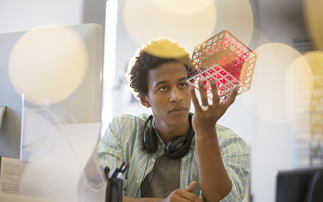Morgan finds Minister of State for Culture and the Digital Economy's evidence on ICT, competitiveness and skills in the UK 'constructive, but predictable'
Earlier this week, the House of Lords Digital Skills Committee called Nick Boles MP, Minister of State for Skills and Equalities, and Ed Vaizey MP, Minister of State for Culture and the Digital Eco...
To continue reading this article...
Join Computing
- Unlimited access to real-time news, analysis and opinion from the technology industry
- Receive important and breaking news in our daily newsletter
- Be the first to hear about our events and awards programmes
- Join live member only interviews with IT leaders at the ‘IT Lounge’; your chance to ask your burning tech questions and have them answered
- Access to the Computing Delta hub providing market intelligence and research
- Receive our members-only newsletter with exclusive opinion pieces from senior IT Leaders






















